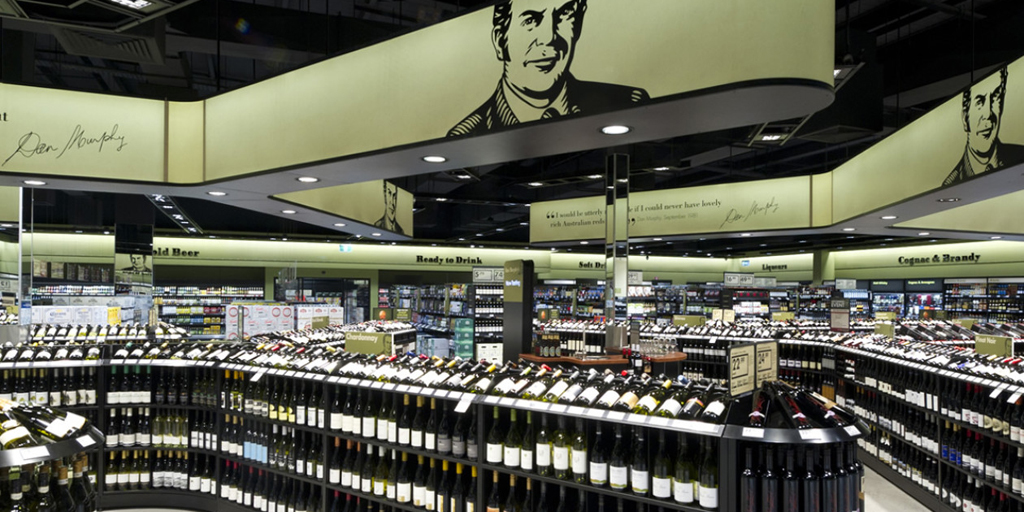
COVID bites but retailers maintain performance

Major alcohol retailers Endeavour Group and Coles Liquor have reported strong sales despite the ongoing impacts of COVID.
Both reported revenue growth for their alcohol retailer divisions, whilst Endeavour’s hotel business was inevitably impacted by lockdowns and consumer caution in the first half of its financial year.
However, sales growth is beginning to slow in comparison to the bumper years both retailers had during the initial COVID-19 period, despite claims being made by the anti-alcohol lobby group the Foundation for Alcohol Research and Education (FARE) last week.
Alcohol Beverages Australia rebutted these claims, suggesting that Australians did not necessarily drink more during the pandemic but rather bought alcohol at higher price points, and for at-home consumption rather than on-premise as a result of lockdowns.
Endeavour Group
In its first six months trading as an independent business, profitability at Endeavour Drinks Group has grown but revenues have proved more challenging.
Endeavour, which consists of its bottleshop division of Dan Murphy’s and BWS, as well as its Hotels business reported “positive” half year results to the ASX this week despite challenges posed by COVID.
The business described its on-premise hotels division and off-premise Retail business as a “natural hedge to each other” through COVID.
Total group sales reached $6.3 billion for the first six months, down 0.3 per cent on the same period last year.
Earnings before interest in its retail business grew 10 per cent to $461 million for the year to 31st December, but hotels declined 0.8 per cent to $121 million.
Overall, group sales are down 0.3 per cent on the same period in 2021, and group earnings before tax grew 3.2 per cent to $556 million.
A major area of growth has been online sales, which have increased 24.8 per cent to $603 million.
While multiple industries have been impacted by supply chain disruptions, Endeavour said it was protected by these issues to a certain extent compared to other sectors, as much of its product range is sourced from Australia and New Zealand.
The business, which also consists of product development arm Pinnacle Drinks, launched over 325 new Pinnacle products in the period. Endeavour said its earnings growth was partially as a result of these activities, which delivered a “more profitable product mix with higher margin new products” as well as less promotional activity in the market.
These included partnerships such as that with Better Beer, a joint venture itself between Mighty Craft portfolio business Torquay Beverage Company and social media influencers The Inspired Unemployed, which has faced a legal battle this year.
Endeavour managing director Steve Donohoe said that the company’s first six months trading as an independent business “demonstrated the structural resilience of the Group”.
Sales were in line with last year and profitability had increased “significantly” he said, but inevitably the hotels business was impacted by ongoing uncertainty around new strains of COVID-19.
”Our Hotels business was particularly hard hit in H1 F22. There were multiple and extensive COVID-19 impacts in the first quarter, including lockdowns in the key markets of Victoria and New South Wales….high levels of infection in the community since the emergence of the Omicron variant resulted in reduced patronage in hotels in the period immediately prior to Christmas and impacted the first six weeks of H2 F22.”
But this was countered by growth in its bottle shop sales, which Donohoe said was “elevated” through the half.
“We delivered Retail sales consistent with the exceptionally strong H1 F22 period. Our Retail business profitability also improved considerably in the period. Retail EBIT increased by 10.0 per cent when compared to the same period last year, delivered through gross profit margin improvements and disciplined cost management.”
At the time of writing, Endeavour Group had a share price of $7.26 and a market capitalisation of $13.3 billion.
During its half year, it returned a 12.5 cent interim dividend per share, at a 71.9 per cent payout ratio.
Coles Liquor
Coles Liquor, owner of First Choice and Liquorland bottleshops, has also seen “elevated” sales during the last six months and faced challenges from the on-premise market.
The business described the increase as “cycling the COVID-19 related sales growth in the prior corresponding period.”
Revenue sales for liquor increased by 2.7 per cent to just under $2 billion, which was driven by strong eCommerce sales growth, according to the business.
Earnings before interest for Coles Liquor decreased by 4.8 per cent to $99 million, as a result of investing in customer service and eCommerce, according to the business.
“Improving customer metrics in service, value, range, and store experience were supported by investments in customer service, particularly leading into the peak Christmas trading period, and a focus on delivering trusted value through lowering prices for longer,” Coles said in an investor release.
The business also saw a 60 per cent increase in eCommerce sales growth, which Coles said was supported by the opening of a fourth eCommerce store in New South Wales.
Sales started to soften however, once more on-premise venues began reopening in time for the holiday period.
While spirits and ready-to-drink beverages performed strongly for the business at a category level, this was underpinned by recent activity in growth products like seltzers and gin.
Overall sales revenue for the Coles Group rose by 1 per cent to $20.6 billion while its net profit after tax fell by 2.2 per cent to $549 million.
Additional reporting by Vivien Topalovic



